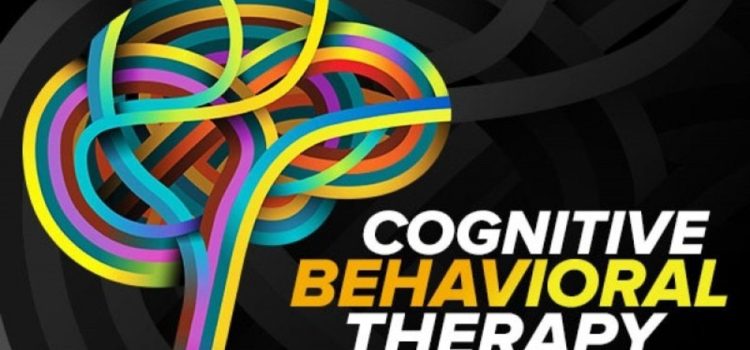
Anxiety is a prevalent mental health condition affecting millions worldwide. It manifests in various forms, including generalized anxiety disorder, social anxiety, panic disorder, and more. As society becomes increasingly aware of mental health issues, the demand for effective treatment options has surged. Cognitive Behavioral Therapy (CBT) has long been a cornerstone in the treatment of anxiety disorders. Recent advances in CBT have further enhanced its efficacy, providing renewed hope for those grappling with anxiety.
Understanding Cognitive Behavioral Therapy
Cognitive Behavioral Therapy is a structured, time-limited psychotherapy that aims to change patterns of thinking or behavior that are behind people’s difficulties, thereby changing the way they feel. At its core, CBT is based on the concept that our thoughts, feelings, and behaviors are interconnected, and that changing negative thought patterns can lead to changes in feelings and behavior.
Traditionally, CBT involves identifying and challenging negative thoughts, learning to replace them with more realistic ones, and gradually facing feared situations. This approach has been proven effective for a range of anxiety disorders, helping individuals develop coping strategies and reduce symptoms.
Recent Advances in CBT for Anxiety
Technology-Enhanced CBT
One of the most significant advancements in CBT is the integration of technology. With the rise of digital platforms, CBT has become more accessible through online therapy sessions, apps, and virtual reality (VR). Online CBT provides flexibility and convenience, allowing individuals to access therapy from the comfort of their homes. This is particularly beneficial for those with severe anxiety who may find it challenging to attend in-person sessions.
Virtual reality exposure therapy (VRET) is an innovative tool that uses VR technology to create immersive environments where individuals can confront their fears in a controlled setting. This method is particularly effective for phobias and social anxiety, offering a safe space for gradual exposure.
Mindfulness-Based Cognitive Therapy (MBCT)
Mindfulness-Based Cognitive Therapy is a modified form of CBT that incorporates mindfulness practices. MBCT teaches individuals to become more aware of their thoughts and feelings without judgment, fostering a sense of acceptance and reducing the impact of negative thought patterns. Research has shown that MBCT is particularly effective in preventing the relapse of depression and can significantly reduce anxiety symptoms by promoting a non-reactive awareness of one’s experiences.
Third-Wave CBT Approaches
The evolution of CBT has led to the development of third-wave therapies, which focus on the context and function of psychological events rather than their form. These approaches, such as Acceptance and Commitment Therapy (ACT) and Dialectical Behavior Therapy (DBT), emphasize acceptance, mindfulness, and values-driven action.
ACT, for example, encourages individuals to accept their thoughts and feelings rather than fighting or feeling guilty for them. It promotes living in accordance with one’s values, which can reduce anxiety by shifting focus from distressing thoughts to meaningful actions.

Personalized CBT
Personalized CBT tailors therapeutic interventions to the individual’s unique needs, preferences, and characteristics. This approach leverages data from psychological assessments, genetic information, and even neuroimaging to create a customized treatment plan. Personalized CBT is gaining traction as it acknowledges that anxiety is not a one-size-fits-all condition and that individualized treatment can enhance outcomes.
Integration with Pharmacotherapy
While CBT is effective as a standalone treatment, combining it with pharmacotherapy can enhance its efficacy for some individuals. Advances in understanding the biological underpinnings of anxiety have led to more targeted medications. When used alongside CBT, these medications can help manage symptoms, allowing individuals to engage more fully in therapy.
Efficacy of Advanced CBT Approaches
The effectiveness of these advanced CBT approaches is supported by a growing body of research. Studies have shown that technology-enhanced CBT can be as effective as traditional face-to-face therapy, with the added benefits of accessibility and convenience. Mindfulness-based and third-wave therapies have demonstrated significant reductions in anxiety symptoms, particularly for individuals who have not responded to traditional CBT.
Moreover, personalized CBT holds promise for improving treatment outcomes by addressing the specific needs of each individual. By integrating pharmacotherapy, individuals can experience quicker symptom relief, which can enhance engagement in CBT and improve long-term outcomes.
Challenges and Future Directions
Despite these advances, challenges remain in the widespread implementation of these new CBT approaches. Access to technology and internet connectivity can be barriers for some individuals, particularly in low-resource settings. Additionally, the effectiveness of virtual and online therapies relies heavily on the individual’s motivation and engagement, which can vary.
There is also a need for more research to establish standardized protocols for personalized CBT and to explore the long-term efficacy of these approaches. Training therapists in these new methods is essential to ensure they are equipped to deliver effective treatment.
Looking forward, the integration of artificial intelligence (AI) in CBT could revolutionize anxiety treatment. AI-driven platforms could provide real-time feedback, track progress, and offer personalized interventions, making therapy more responsive and adaptive to individual needs.
Conclusion
The advances in Cognitive Behavioral Therapy are transforming the landscape of anxiety treatment. By embracing technology, incorporating mindfulness, and personalizing interventions, CBT is becoming more effective and accessible. These innovations hold promise for improving the lives of those struggling with anxiety, offering hope for a future where mental health care is more tailored, effective, and available to all who need it. As research and technology continue to evolve, CBT is poised to remain at the forefront of anxiety treatment, helping individuals lead healthier, more fulfilling lives.










